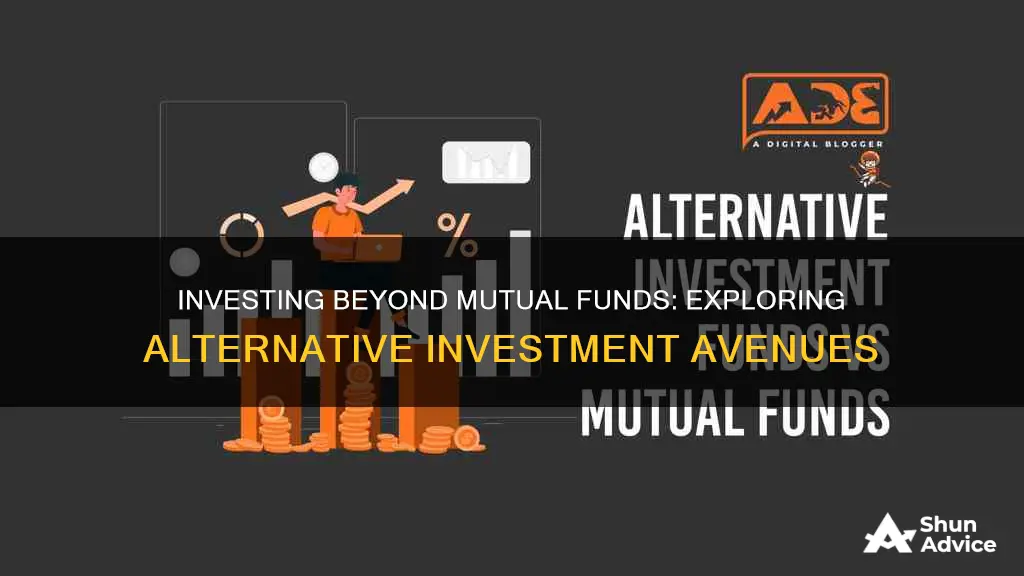
If you're looking to invest your money elsewhere, there are a variety of alternative investment opportunities to consider. Here are some options:
- Real Estate Investment Trusts (REITs): REITs allow you to invest in a range of real estate, including housing, commercial buildings, hotels and warehouses. The rental proceeds are then distributed to the owners.
- Peer-to-Peer Lending: You can invest in loans to other people through peer-to-peer lending services, contributing small amounts and getting repaid with interest as the loan is paid back.
- Savings Bonds: Offered by the federal government, savings bonds pay interest over a specified period and are very low risk.
- Gold: You can invest in gold in various ways, including bullion, coins, mining companies, futures contracts and mutual funds.
- Certificates of Deposit (CDs): CDs are bank accounts that offer a fixed interest rate for a specific period, protected by the Federal Deposit Insurance Corporation.
- Corporate Bonds: When companies need to borrow money, they issue bonds which pay interest over a set period.
- Commodities: You can buy and sell contracts for future commodities, such as foodstuffs and metals.
- Vacation Rental Property: Buying a vacation home can be a great way to invest, as you can use it yourself and rent it out to cover costs and hopefully make a profit.
- Cryptocurrencies: Cryptocurrencies are decentralised, digital currencies that are gaining popularity worldwide, with Bitcoin being the most well-known.
- Municipal Bonds: Issued by city and state governments, these bonds might pay lower interest rates but the interest is often exempt from federal income taxes.
- Private Equity Funds: Private equity funds pool investors' money and invest in privately held companies, but they can have high management fees and may lock up your money for several years.
- Venture Capital Investing: This involves loaning money to business startups, and is usually only available to accredited investors.
- Annuities: Annuities are contracts where you pay a certain amount upfront in exchange for a series of payments over a certain period or for life.
What You'll Learn

Real Estate Investment Trusts (REITs)
REITs are structured as corporations and are typically traded on major exchanges like stocks. They receive special tax considerations and offer investors high dividend yields, as well as a liquid method of investing in real estate. By law, REITs must pay out at least 90% of their taxable profits to shareholders as dividends, and they are often free from most corporate income tax.
There are two main types of REITs: Equity and Mortgage. Equity REITs own and manage properties and collect payments from tenants, while Mortgage REITs invest in mortgages and derive their income from interest payments.
REITs provide a way for individual investors to earn a share of the income produced through commercial real estate ownership without actually having to buy or manage the properties themselves. They offer benefits such as growth, income, diversification, and inflation hedging. However, there are also risks associated with REITs, including sensitivity to interest rate changes, economic downturns, and sector-specific challenges.
When investing in REITs, it is important to consider the type of investor you are and whether you prefer to invest in an exchange-traded fund or a mutual fund that tracks a broad-based REIT index. It is also crucial to understand the benefits and risks of different types of REITs, such as publicly traded vs non-traded REITs, and to consult a financial advisor before making any investment decisions.
Who Should Invest in Mutual Funds?
You may want to see also

Peer-to-Peer Lending
There are many P2P lending companies to choose from, including LendingClub and Prosper. The returns on P2P lending can often be higher than those from standard savings vehicles. However, the main risk is that you are loaning to people who may not have been able to get a loan from a bank or other traditional loan outlets, which could increase their likelihood of default.
To mitigate this risk, you can decide on the credit rating and other parameters you'll consider for a borrower, and you always have the choice to fund or not to fund. By investing small amounts in a range of notes, you can reduce your exposure to any one person's financial situation.
Global Funds: Where Are They Invested?
You may want to see also

Savings Bonds
The U.S. Treasury currently offers two types of savings bonds: Series EE Bonds and Series I Bonds. Series EE Bonds earn a fixed rate of interest during the first 20 years, which then adjusts for the remaining 10 years. The government guarantees that these will double in value in 20 years. Series I Bonds offer a fixed base rate plus an interest rate that changes with inflation and adjusts every six months.
Liquid Fund Investment Strategies: Where to Invest?
You may want to see also

Gold
There are various routes for investors to get exposure to gold, like buying and holding physical gold such as coins or bars, gold exchange-traded funds (ETFs), gold accounts, or investing indirectly through gold mining stocks or futures and options.
However, if you're a small investor, it's wise to opt for direct methods of investing in gold. This usually includes buying gold bullion—coins, bars, or other physical forms of gold. An allocation of 5% to 10% of gold is considered healthy for an individual’s portfolio.
However, gold does not provide a compounding benefit as it does not yield dividends or interest to its investors, which can be reinvested. Additionally, gold in the form of jewellery or ornaments has making and labour charges of up to 10-20% of the gold value.
Contingency Fund Investment: Where to Place Your Safety Net?
You may want to see also

Certificates of Deposit (CDs)
- They are one of the safest places to keep your money.
- They offer guaranteed returns.
- They potentially offer higher interest rates than savings accounts.
- They don't usually have monthly maintenance fees.
However, there are also some cons to consider:
- You can't withdraw money from a CD account without paying an early withdrawal penalty.
- Interest rates may be low when you open your account, and you won't be able to take advantage of any increases without incurring penalties.
- Inflation may outpace the rate of return on your CDs.
- Your money may grow faster if you invest it in stocks or mutual funds instead.
When choosing a CD, consider the length of time you want to keep your money locked up, the minimum deposit required, the interest rate, and any early withdrawal penalties. Here are some of the best CD rates from top banks:
- Barclays Bank: 6 months - 5 years, 3.00% – 5.10% APY, no minimum deposit
- America First Credit Union: 3 months - 5 years, 3.85% – 5.00% APY, $500 minimum deposit
- Quontic Bank: 3 months - 5 years, 3.00% – 4.95% APY, $500 minimum deposit
- Popular Direct: 3 months - 5 years, 3.55% – 4.65% APY, $10,000 minimum deposit
- Vio Bank: 6 months - 5 years, 2.75% – 4.60% APY, $500 minimum deposit
- Synchrony Bank: 3 months - 5 years, 0.25% – 4.50% APY, no minimum deposit
- Marcus by Goldman Sachs: 6 months - 5 years, 4.00% – 4.50% APY, $500 minimum deposit
Index Funds: When to Start Investing for Maximum Returns
You may want to see also







